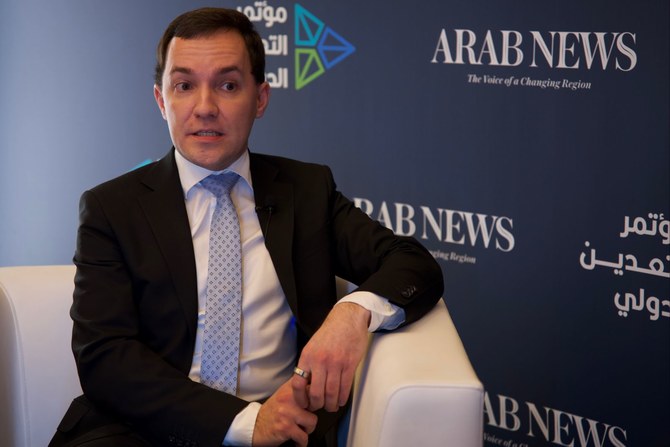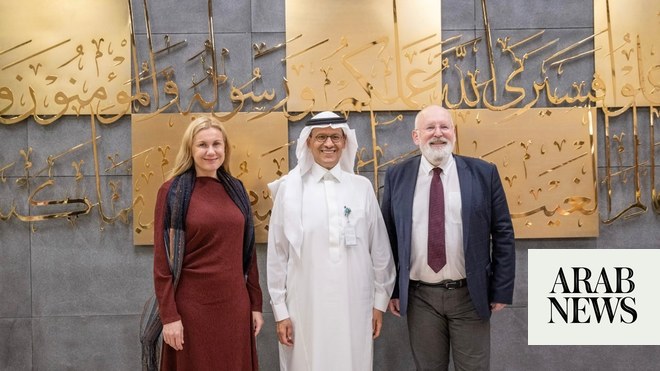
RIYADH: “Serious people” must get involved to solve the energy transition conundrum, according to Saudi Arabia’s Energy Minister Prince Abdulaziz bin Salman.
Speaking at the Abu Dhabi International Petroleum Exhibition and Conference, known as ADIPEC, on Oct. 31, the minister also insisted that knowledge sharing between countries is needed to smoothen the journey of the energy transition.
The minister further noted that Saudi Arabia and the UAE are working together to become exemplary energy producers who eye achieving sustainability goals.
“We and the UAE are working diligently hard to prove that carbon sequestration is one solution out of many the industry should work hard,” said the Saudi energy minister.
He added: “We need knowledge sharing to happen. We need to bring serious people to become involved with us in bringing the solution. Breaking the so-called energy constraints requires lots of brains, investments and technologies.”
Prince Abdulaziz bin Salman also reaffirmed Saudi Arabia’s partnership with the UAE in the energy sector.
“There is so much we could prove together. We should continue to be the exemplary two countries in energy production. We are no longer oil producers, we are energy producers,” he said.
For his part, UAE Energy Minister Suhail Al-Mazrouei said that the Organization of Petroleum Exporting Countries, and its allies, known as OPEC+, is keen on providing the world with the oil supplies it needs.
He added that OPEC+ will always remain a trusted technical organization to balance oil supply and demand.
During the event, Sultan Al-Jaber, CEO of Abu Dhabi National Oil Co. said that the world demands maximum energy production with minimum emissions.
Al-Jaber further pointed out that zeroing out hydrocarbon investment due to natural decline could lead to a loss of 5 million barrels of oil per day a year from current supplies.
“The data is clear. If we zero out hydrocarbon investment due to natural decline, we would lose 5 million barrels per day of oil each year from current supplies. This would make the shocks we have experienced this year feel like a minor tremor,” said Al-Jaber.
Egypt’s Minister of Petroleum and Mineral Resources Tarek El Molla also shared similar views and noted that the world requires more energy with fewer emissions, and added that Egypt aims to generate 40 percent of its energy needs from renewable sources by 2030.
During the event, Hardeep Singh Puri, India’s minister of petroleum and natural gas, said the country is working on renewables including green hydrogen and blue ammonia.
He also warned that the sustainable transition will be undermined if energy-consuming giants are reluctant to push harder to make the transition happen.
“The transition will be severely undermined, especially, when large consuming countries are not pushing to make that transition,” said Puri.
US energy envoy Amos Hochstein said that more investment is needed in the oil and gas sector, and added that energy has to be priced in a way that allows for economic growth.
Hochstein also noted that the relationship of the US with the UAE is “strong, long-standing and enduring.”












